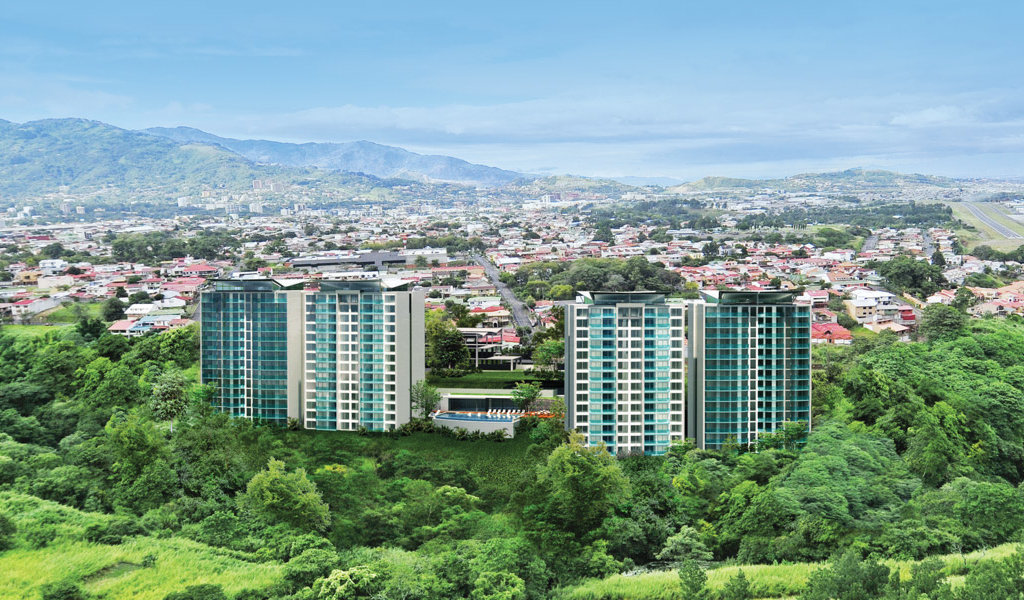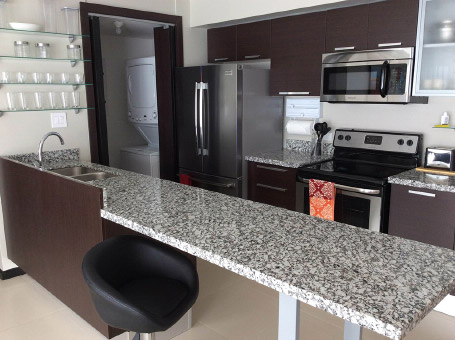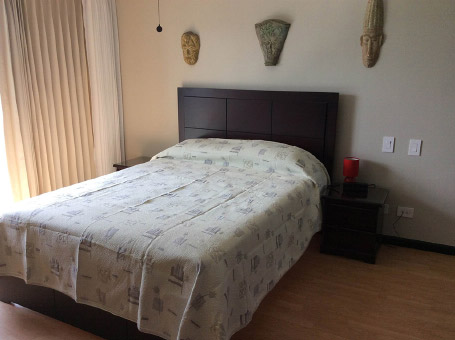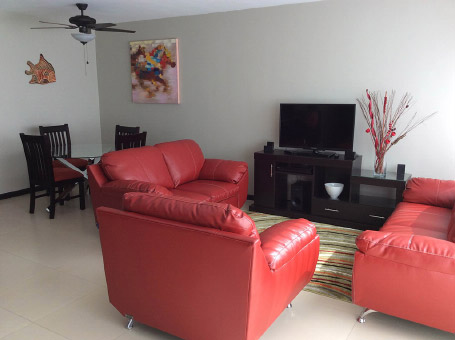COMMENTS
1. Teachers: Talking strike again. Some US businessmen, through the Chamber of Commerce is voicing their concern... surprising that Ticos don't object. This group of public employees are very unproductive, pampered, and I can go on, and, on, and on...
2 / 8 / 9. New Tax Laws: Chaos reigns... systems do not yet support the newly published regulations, see now many companies have actually complied with registration. I have lots and lots of concerns about the reporting requirements... It will be difficult for me, and once a chaotic system is implemented it will implode and the reporters of information will pay the penalty... I go to a shoe box or close my account for elsewhere. It is really becoming way to difficult to do business in CR.
3. Bayer... keeps hiring... Maybe the big guys can survive... they are probably exempted...
4. Puerto Caldera: the newest port and CR's gem on the Pacific, has become antiquated and inefficient... the market has changed to larger ships with deep drafts and from bulk / pallet carriers to containers... the port is too shallow -it has not been dredged enough, and cranes do not exist for container unloading. This could be solved easily but won't be due to CR culture and multiple impediments... my guess... 5 years is optimistic...
5 / 6. Credit Default Forgiveness and Central bank stimulus: Yes, the government is going to allow deadbeats to default on one debt of their choice if they are good on all others... wow!!!!!! and the Central bank has reduced the reserve requirement so banks can now lend more -an admission that the economy here is beginning to suck.
7. VAT tax on rents... Ticos have already figure ways to avoid this... No tenant is now going to pay an additional 13% on top of their current rents. And no owner is either...
Conclusion: What we have here is a mess... developers / buyers -someone is now going to pay 13% on the sale/purchase of a property; capital gains tax will now apply although the rules for determining valuation are not clear, and there seems to be no provision for capital loss deductions, taxes on everything -services (there will be a lot of "leakage" amongst professionals... Doctors / lawyers / architects / engineers / contractors / trades / landlords / renters / RE agents / mortgage brokers ...virtually everyone... and not that only 300 of 29,000 entities have so far filed... think about this...
1. US businessmen in Costa Rica censor call to strike
The Costa Rican Chamber of Commerce (Amcham) criticized the strike calls made by several teachers’ unions to oppose the bill that legislators are discussing to regulate strikes in the public sector.
On the other hand, the body that groups US companies that have operations on Costa Rican soil called on legislators to accelerate the discussion and vote on the bill that provides legal security on strikes and their procedures.
The intentions of the American businessmen is that the interests of all Costa Ricans are protected as soon as possible, according to their press release.
We want to draw attention to the fact that abuses to exercise the right to strike cannot be protected by law. If we do not put an end to this situation, the rights of all Costa Ricans will be violated. The right to strike exercised to the detriment of others will only affect social coexistence, destroy jobs and hinder economic growth,” said Elías Soley, president of Amcham.
The previous strike, reduced the expected economic growth of the country by 0.4 percentage points, according to Central Bank estimates, which is equivalent to ¢ 138.7 billion. This, added to all the students who stopped receiving lessons for 93 days,” lamented the camera in the statement.
The draft law that provides legal security on strikes and their procedures strives to declare that strikes that affect essential public services that affect life, health and safety are illegal.
It also establishes as the only cause to dissolve a union that organizes or incites its members to block public roads, or sabotage State property, or if it carries out any action that is classified as a crime.
In addition, the proposal contemplates the wage reduction for public employees who participate in strikes that are declared illegal by a judge.
crhoy.com
2. Crazy New Tax Laws in Costa Rica That you Need to Know About
It’s no surprise that Costa Rica isn’t in the best financial shape. Costa Rican Congress approved a new tax package called “Law of Strengthening of Public Finances number 9635”. Guess what this means……more taxes. Within the new taxes commencing July 2019 Hacienda will expand the number of products and services that will be taxed with IVA or “Value Added Tax”, which is essentially a sales tax on steroids. Capital gain taxes are also coming when selling real estate property plus a “surprise” for inactive companies holding assets in them.
Starting July 1st, many professional services will be taxed with VAT. So now the lawyers, engineers, consultants and all kinds of independent professionals will be obliged to include an additional 13% onto the invoices they issue. As for insurance policies, most of the general insurance premiums are already taxed with VAT, so they will not suffer much change. Personal insurances will have an increase of 2% and Occupational Risk insurance and insurance that covers homes with a value of less than 58 million colons -approximately US $100K- will be exempt.
All commercial property rentals will suffer an increase of 13%. As for housing rents, only those whose amount exceeds 670,000 colons – approximately US $ 1,145 – will have to pay an additional 13% VAT. Airlines tickets whose origin or destination is Costa Rica, as well as private health services will pay an additional 4%. The tariff of 13% for water consumption will apply when the consumption exceeds 30 cubic meters per month and the electricity VAT will be charged where consumption rates are greater than 280 kilowatts/hour.
As for the capital gains tax, if a real estate property is sold after July 1, the tax must be paid and there will be two options to calculate it: 15% on the profit or 2.25% on the total sale value. According to the tax authorities, to be able to apply 15% on the profit (difference between the acquisition value and the sale value), the seller must demonstrate the purchase value. This means more paperwork and work. Once the acquisition value is reached, it must be updated with the consumer price index of the INEC (Institute of Statistics and Census) and the improvements and investments made can be deducted.
If seller prefers to skip the paperwork required to demonstrate the purchase value they can choose a flat rate of 2.25% over the total sale value to proceed paying immediately. This new tax is added to the current costs generated by the sale of a real estate property, which are usually transfer taxes for approximate 2.5%, real estate agent’s commission usually 5% and lawyer fees that vary between 1% and 2%. Once the first sale happens after this amendment, that purchase price will now have a record kept to calculate the tax and property tax in the future.
Now to the change that can take the owners of inactive companies by surprise. The new law establishes that both active and inactive corporations must submit income tax returns. Although for the case of the inactive, the income tax payable would be zero, here is the catch: if the amount of capital stock differs from the value of the assets that it has in its name, the company is at risk of an unjustified capital increase. This empowers the Ministry of Finance to consider that it generates an increase in the taxpayer’s income, which generates an increase in gross income.
For the tax authorities there are two types of unjustified capital increases: internal and external. The internal is when there is a difference in value between assets and equity, or the existence of nonexistent liabilities. The external ones are those that a taxpayer does not declare and are discovered later, as a society that has assets in another country. Therefore, it would be advisable to at least make an adjustment in the amount of capital stock so that there is no large difference in relation to the assets it has as inactive company. And check the possibility to find records of the origin of the funds.
Certainly, there are many inactive corporations that have a stock capital of less than US $200 but have assets with a value of hundreds of thousands or millions of dollars, and this may become a real problem in the future. It is better to take precautionsand avoid charges, fines, interest along with many headaches. It is time to learn how Costa Rica is changing and to take precautions accordingly.
About the Author: Allan Garro was incorporated as a lawyer and public notary in 1996. He specializes in Litigation, Corporate, and Real Estate Law. He has also acted as an external legal consultant to Congress. He has been the author of more than 100 published English Language articles and can be reached at allan@garrolaw.com
3. Bayer extends operations and would hire 200 employees
Two years after officially settling in Costa Rica, the Shared Services Center of Bayer announced on Wednesday that it will double its operations, forecasting to close the year 2019 with at least 500 employees.
Currently, 285 people work in the three offices that Bayer has in the America free zone, located in San Francisco, Heredia.
The Center, which gives administrative support to the Bayer operations, provides services to Central America, Mexico, South America, the United States, and Canada.
As part of the expansion, Bayer has also installed two new offices with work stations, meeting rooms, and collaborative areas for which it has invested almost $3 million between infrastructure and equipment.
The Financial Manager of Bayer in Central America and the Caribbean, Klaus Wussow, said that "the growth is not only due to the level of satisfaction of our clients, but also to a corporate strategy of optimization of the processes of administrative support to our business areas. , through the operational excellence of our shared services centers.”
After this announcement, President Carlos Alvarado said that this is an important signal of the confidence and security that Costa Rica offers to foreign investment.
In May, President Alvarado traveled to Germany, where among other meetings, he met with executives from Bayer. He said that he talked about the competitive advantages that Costa Rica has for its human talent, educational level, geographical location, political and social stability, defense of the environment and human rights, among other factors.
In relation to the expansion of operations, Daniela Petig, Administrative Director of the Service Center of Bayer said that "it is very satisfying to see how we have evolved from providing accounting services to 7 countries with 15 people, to support with higher added value services to 100 percent of our operations in America -except Brazil-, through an internal culture of innovation, collaboration and continuous improvement, always focused on our customers.”
The departments that are hiring are Order to Cash, Source to Pay and HR Operations.
The vacancies at Bayer are for people who speak English, with knowledge in accounting, finance, business administration or similar. Those interested in competing for work can send their CV to the electronic address: recursoshumanos.scr@bayer.com
Worldwide, Bayer has seven shared services centers located in Manila-Philippines, Dalian-China, Gdansk-Poland, Barcelona-Spain, Bangalore-India, Heredia-Costa Rica and Leverkusen-Germany, where the parent company is also located.
4. Puerto Caldera urges expansion for $ 187 million to exit the collapse
Deficiencies in dock raise costs of imported products and complicate trade with Asia; dealer that operates since 2006 offers to do works but current contract prevents it.
Seven years after the end of the concession contract with the port operator Caldera, in Puntarenas, the government is seeking alternatives to modify or de-link from that agreement in the face of the urgent need to expand the port terminal.
The cost of the required works is estimated at $ 187 million.
The Pacific's only international port reached its maximum capacity and its operation is as collapsed as it was 13 years ago, when the concession was granted precisely to improve efficiency.
"In the sixth year, the load that was planned for the 20 years of the concession was reached. Today we have twice the load that was expected to reach 20 years after the project was granted, "said Juan Ramón Rivera, president of the Costa Rican Institute of Pacific Ports (Incop).
That means that, when the concession was signed, it was estimated that by 2026 three million tons of cargo would be reached per year, but at this moment six million tons are moved, mainly from bulk materials and vehicles.
The port was designed in the 70s and came into operation in December 1981, so, according to Rivera, is "out of service" for more modern ships, because, among other problems, has a maximum draft level of 10 meters (the concessionaire maintains that they are 13 m), which are reduced because of the sedimentation that comes in due to damage in the breakwater.
That structure, partially destroyed during Hurricane Otto, in November 2016, is under repair by the Ministry of Public Works and Transportation (MOPT).
"When that dock was designed and when the concession was made, nobody expected that the world economic development would move from the Atlantic to the Pacific, where China is about to become the largest economic power; are Korea, Singapore, etc. "added Rivera.
As he said, all these conditions make it almost impossible to dock large container ships and bulk carriers. In addition, the port was designed to handle cargo in bulk and on pallets , but much of the cargo comes in containers.
"What is happening is that the boats have to wait more than necessary (in bay). If we add to that the weather conditions and that the breakwater is not in all its condition, the port is almost as inefficient as when the concession was given in 2006, " he said.
For damage to the breakwater, when there are high tides the port must close for up to five days.
"That will not happen to us as with Japdeva"
Alfredo Salas, director of the Costa Rican Chamber of Shipping, confirmed that in recent months have faced "serious" problems with the sediment that filters and prevents the entry of ships of greater draft.
According to him, doing it more deeply is the most urgent need, but it also requires more berths and improvements to wineries.
"We have already had some members of the Chamber, the observation that they have not been able to consider their plans for growth and development because of the issue of draft," he said.
Salas said that, in the face of the enlargement process that the Government is developing, it is important that the opinion of the users be taken into account so that the change is functional and in accordance with the volume statistics.
"That it will not happen to us as with Japdeva (Board of Port Administration and Development of the Atlantic Slope) that bought two gantry cranes of almost $ 15 million and we were not taken into account, nor was there a previous analysis of the demand", he claimed.
In addition, the expansion of access roads should go hand in hand with the growth of the port terminal.
Recently, the Costa Rican Railway Institute announced a plan to develop a freight train from Alajuela to Caldera. In addition, the Government is moving forward in the previous phases to renegotiate the extension of route 27 that connects San José with that port.
Andrés Gamboa, director of the Chamber of Exporters of Costa Rica (Cadexco), agreed that the port conditions "are subtracting competitiveness" and could diminish the use of the new free trade agreement with South Korea and increase the shipping time of fresh products to China.
"This limitation is hindering the transit to that destination with potential products such as pineapple, which has an important commercial niche in that market, despite the great time of transfer affects the quality, freshness and durability of the product."
According to Gamboa, since large ships can not come to Caldera, they must make shipments with transshipments. The cost of a container that transfers to either Panama or Mexico, represents an additional $ 300 to $ 500 for an exporting company.
The Port of Caldera currently operates at the top of its capacity. Incop for LN.
"The port would become a small port"
Recently, the Incop received the results of the master plan hired by the Dutch-Costa Rican consortium Arcadis-Camacho Mora.
The main result of this report is that an urgent extension is required, with an investment of $ 187 million in the first stage.
According to the plan, by 2020 the new contracting process must be carried out so that in 2021 the works begin, especially the deepening of the current berths.
"It is urgent because they say that if this work is not done, the port would become a little port of cabotage.
"We have the problem that at this moment it is difficult to export perishable products to China, because large ships do not come, you have to change at another port in Mexico or Panama and that makes the cargo last longer than expected. "Said the president of Incop.
With the investment planned in the master plan, in the first stage, the dock would be 15 meters deep and four additional gantry cranes would be installed.
Of course, it would maintain the same four berths it currently has, but with greater operational capacity.
This stage would be developed in two phases, the first in 2021 and when it is concluded, the second phase would begin immediately.
In the second stage, $ 75 million would be invested, but this would be executed within five to six years and includes a new general cargo berth.
Moored?
Although the Administration and the users of the port qualify as "urgent" the extension, the outputs to comply with the master plan are not so simple.
The Caldera port concession was not signed with the Concessions Law (it did not exist), but an operation and services contract was made based on the Law on Administrative Contracting. This means that the Port Society of Caldera (SPC), the consortium in charge of the management, can not carry out important civil works, but is only authorized to perform maintenance tasks and provide the service.
However, as in the Caldera dock there are two different concessions (although in charge of the same consortium), the other contract that was signed for the operation of the bulk terminal (inaugurated in 2015) would eventually allow more works and renegotiate the term.
"We basically have two alternatives. One is to see how we renegotiate this concession by making both of them a single one, and that is what we are working on, because it would allow us - if the Comptroller and the Aresep hurry a bit - to have the necessary time for approval and we could begin the works in 2020
"The other, which is the most serious, would be to resolve the current concessions, which would imply a compensation of around $ 100 million and would lead to a new tender and adjudication that would be until the end of 2022, when the works, according to the master plan, "Rivera explained.
Another of the shortcomings of the contract is that when it was signed, a fixed maintenance amount of $ 500,000 per year was established.
"For the first two or three years that was enough, but as the load grew much more than expected, obviously that amount was very short," said the head.
Even so, additional investments have been made, including the purchase of two cranes and the construction of a refrigerated container yard.
Ricardo Ospina, concessionaire manager: Renegotiating the contract is a viable option
The concessionaire Sociedad Portuaria de Caldera presented an initiative to the Government to expand the port at the end of last year, however, this proposal depends on defining the legal situation and the works indicated in the master plan.
However, the manager does not rule out the option of renegotiating the contract through the alternatives studied by the Administration.
- Currently, to what capacity of operation is the port?
-The port of Caldera is operating with an average occupancy that ranges between 70% and 80%. We have doubled the transfer of charges thanks to the investments we have made, which add - since we started the concession - about $ 105 million.
"By year 12, we have increased the initial volume by more than 200%, with more than 300,000 TEU (20-foot containers), and the total volume has grown by around 160%, to reach nearly 6 million tons."
-What type of boats have capacity to attend?
-The port has four berths with different depths and lengths, the wharf that has better conditions is the 4 (inaugurated in 2015), which is 13 meters deep. The most common are ships of between 500 and 2,500 TEU, with drafts between 9 and 10 meters and a length of up to 125 meters.
-What are the improvements required by the port terminal?
- They are basically the ones we present in the modernization plan: increase in draft, improvements in equipment, yards and increase storage capacity.
-What is the attention of large ships?
- Large vessels, currently, do not schedule their calls at Caldera port, use Panama or Mexico to drop the cargo and from there on smaller ships ( feeder s) distribute it to other terminals.
-The difficulties, as the issue of draft, in how much do the attention of the boats cost?
- Today we have a high flow of smaller vessels, which multiplies the attentions and results in longer waiting times, episodes of congestion and higher costs.
-What is the proposed extension to the Government?
-In December, we presented a proposal to the authorities that seeks to invest $ 150 million to modernize the terminal and triple its storage capacity; expand its berthing screen by 20 meters wide; deepening the docks turning dock and access channel to 16 meters; besides improvements in equipment and patios.
- The concessionaire would be willing to renegotiate the terms of the concession in order to execute the required extension?
-Yes, we are committed to Costa Rica and its port development.
- One of the options valued by the Incop is to unify the two existing concessions, that they see viable?
- We believe that it can be a good alternative that deserves to be analyzed. The focus is on the urgency of modernizing the port and this may be an option.
5. Three banks guarantee clean credit record to 63,000 card debtors
The BCR, the Banco Popular and the BAC consider that this measure would allow banks to boost the economy by granting more loans, and debtors to improve their capacity to pay.
Three banks believe that it would be favorable to clean up the records of some 63,000 people who have had credit card payment problems and, although they pay attention to the rest of their debts, today they can not access any financial operation because they have stained their credit record.
These are the banks of Costa Rica (BCR), Popular and BAC. The entities assure that, although it is necessary to carefully study this proposal from the General Superintendency of Financial Institutions (Sugef), they see it with good eyes.
Currently, in Costa Rica there are 78,000 people with a stain on their payment history, of which some 77,000 fell into that category due to credit card debt.
Sugef's proposal is to free 63,000 of those debtors from the stain who, although they report irregularities with cards, mostly attend the rest of their accounts well and do not neglect them to the point of being in the worst risk category for banks.
If the financial institutions give the go-ahead to the reform, there would only be about 15,000 people in the ranks of the clients with the least possibilities for banking. These are clients with a very bad credit file, with arrears of up to 150 days.
According to BCR, Banco Popular and BAC Credomatic, the changes in the credit risk measurement system promoted by Sugef would allow banks to boost the economy by granting more loans.
In addition, they estimate, it would be an incentive for debtors to improve their ability to pay and, with that, their status within the national financial system.
The Banco Popular reported that, although it has not received the formal consultation of the Sugef, the idea of cleaning up the debtors' credit stain "would seem an initiative to evaluate and analyze seriously" for the benefit of the clients.
"Many working people have had problems with credit cards for improper use, but they have also responsibly and adequately taken care of another type of credit they may have."
"With the proposal that would be raised, these people could be subject to credit in the national financial system and, among other advantages, avoid having to resort to unregulated companies, agiotistas or informal lenders who charge usury interest rates," he said. the Communication Office of Banco Popular.
Álvaro Vindas, Credit Management Manager of the BCR , affirmed that "the 'stain' in the credit payment record often becomes the main obstacle for a financial institution to grant a loan because, if given, it would negatively impact on the estimates (of the banks) ".
"If the client is able to update his obligations, improve his ability to pay and take good care of his current debts, it would be very positive to clean up the stain," he added.
Meanwhile, the BAC Credomatic said it analyzes the reform, which, in its opinion, should be accompanied by efforts to strengthen the financial education of customers.
"We think it's quite positive (Sugef's proposal), because in BAC Credomatic we believe that anyone has the right to take control of their finances and rejoin the financial system."
"Without a doubt, this process requires a responsible management of finances, and that is why we are very committed to continue working in the promotion of financial education in the country," said Laura Moreno, vice president of Corporate Relations at the bank.
The Nation consulted the National Bank what it thinks of the initiative. However, the institution replied that as it still does not know it in detail, it can not refer to it.
Sugef confirmed that the query will be sent to the bank this Thursday.
Another of Sugef's alternatives, to relieve the pressure of those with a tight credit history, is the possibility of opting for three payment arrangements instead of two, as is currently the case.
Today, when the client has a debt that he can not afford, the financial system allows him to choose two refinances in a period of two years (24 months).
If in that period, after having used the second opportunity to readjust the debt, the person needs a third extension, his credit management becomes a special operation. That is, it enters into a monitoring regime for 90 days (three months), which implies that its risk category deteriorates.
However, Sugef already approved the granting of a third payment settlement opportunity to customers. That is, the management now becomes a "special operation" after the third extension and no longer after the second.
"The power to grant two payment arrangements to clients, without special credit being converted, would make it easier for financial institutions to improve their delinquency rate and incentivize the granting of credits, an aspect that would help boost the national economy," the spokesperson added. of the BCR.
6. Reform would allow clear credit history of 63,000 Ticos
The previous week, President Carlos Alvarado said he had asked Sugef and Conassif to work on a proposal to "relieve" people who have a credit stain and, for that reason, can not opt for a housing loan or to undertake.
In addition, the Central Bank of Costa Rica (BCCR) agreed to reduce the minimum legal reserve for financial institutions, with the objective of stimulating credit in the country's economy.
The reserve represents a percentage of the deposits (whether deposits or deposits) made by the supervised financial entities, which must be kept as a reserve, in cash, in the vaults of the Central Bank.
This reserve was reduced from 15% to 12% for banks, financial and mutual companies, which means that these entities will have more liquidity to grant loans.
7. Monthly rent payment of ¢669,300+ colones to be 13 percent more expensive on July 1
By the A.M. Costa Rica staff
As of July 1, the Law of Strengthening Public Finances will come into force, creating the Value Added Tax known as VAT that applies in some property rental prices.
The new tax will be due only when the rental price is greater than a Basic Salary multiplied by 1.5.
The Basic Salary amount is â‚¡426.200 colones this year. This is a measure used by the government as a reference for calculating taxes or fines.
The reference amount for house rentals is the Basic Salary multiplied by 1.5 or â‚¡669.300 colones. According to the new tax law, monthly house rents over â‚¡669.300 colones must pay 13 percent VAT tax.
Taking today's dollar exchange rate of Banco Nacional of â‚¡587 colones for each dollar, a monthly rental amount of $1,140 would activate the VAT tax.
Landlord and tenant must know that if the Colones - Dollar exchange rate changes it will affect the calculation of the minimum amount that will activate the VAT tax. For example, in October 2018, the exchange rate was â‚¡620.64 colones per dollar. The minimum monthly rent taxable would have been $1,078 at that time.
If a house monthly rent is $1.500, VAT will be equivalent to $195 (13 percent), then new monthly rent tenant have to pay is $1,695.
The landlord is obliged by law to collect the tax from the tenant and then transfer it to the Ministry of Finance by means of the tax declaration. A sanction applies if the owner does not collect and remit the tax.
In addition, in case the landlord does not want to collect the tax from his tenants, he must assume payment of the sum equivalent to the tax.
The tax must also be charged on the rental of premises for commercial purposes (stores, offices, bars, and clinics, among others).
The renter should request that the owner proved an electronic invoice, approved by the Ministry of Finance, detailing the rental amount, the tax amount being paid and the total required payment.
If a rent is less than â‚¡669,300 colones per month, the tax is not required. Rentals of under a month do not activate the tax.
Companies or individuals that have registered with the Ministry of Economy or the Ministry of Agriculture under the classification of a small company are exempt from taxes on rent.
In upcoming editions, we will be clarifying doubts about the new VAT tax law.
8. Some 29,000 people and companies are exposed to the closure of their bank accounts
Only 2% of the individuals or legal entities that must register as new regulated before Sugef, fulfilled this procedure whose deadline expires next Sunday June 30.
The casinos are on the list of new regulated that must register with Sugef before July 1. The image is used for illustrative purposes. Photography: Archive.
Only 636 people and companies of the 30,000 that have the obligation to register as new regulated before the General Superintendency of Financial Institutions (Sugef), fulfilled this procedure until June 10. The figure represents just 2% of the total.
The 29,364 individuals and legal entities that still do not register with the supervisor are exposed to the closure of their bank accounts and the suspension of services in all entities of the national financial system, starting next Monday, July 1st.
The deadline for new supervisors to register before Sugef expires on Sunday, June 30. Bernardo Alfaro, head of the Superintendence, explained that, despite the low levels of registration, it is not valued to grant an extension.
"On what will happen to the bank accounts of those who do not register on time, each financial institution must issue its policies in this regard, but ultimately they will not be able to provide the service," Alfaro said.
The new supervised ones are physical or virtual casinos, credit card issuing companies, lenders, pawnshops, companies dedicated to the purchase and sale of real estate (including real estate brokers, intermediaries, promoters and developers of real estate projects).
Also included in this list are merchants of precious metals and stones, pawnshops, fiduciary providers, remittances between countries, administrators of resources through trusts, issuers of traveler's checks or money orders, exchange operations of money and transfers, and non-profit organizations that receive money from countries with risk of money laundering.
Even lawyers and accountants involved in the purchase and sale of real estate, in the management of money of their customers and in the purchase and sale of legal entities.
9. Only 300 of the 30,000 new supervisors have enrolled in Sugef
The Financial Action Task Force (FATF) evaluated Costa Rica in July 2015 and found weaknesses in the prevention of money laundering and financing of terrorism in some economic activities and professions that this organization considers vulnerable.
To correct these deficiencies, Costa Rica approved, in May 2017, Law N ° 9449 that reformed the regulations on narcotic drugs, psychotropic substances, drugs for unauthorized use, related activities, money legitimation and financing of terrorism.
This amendment to the Law gave the Sugef the obligation to regulate and supervise the activities and professions that are considered vulnerable and issue reports for the Costa Rican Institute on Drugs (ICD). This was explained by Nidia Zúñiga, corporate lawyer of Sfera Legal.
There is concern
The voices of alert for the low level of registrations before Sugef come from the financial sector itself.
Anabelle Ortega, executive director of the Chamber of Banks of Costa Rica, said that for several months financial entities have begun information campaigns and direct contacts with their clients to remind them of this new legal obligation.
"Affectation in the Costa Rican market can be important taking into consideration the data provided by the Sugef, so perhaps the regulator could assess an extension of the term." Anabelle Ortega, director of the Chamber of Banks.
For María Isabel Cortés, director of the Costa Rican Banking Association (ABC), financial institutions have a legal mandate that they must comply with, so they will close the accounts of those who must register, but do not do it on time.
"The bank will contact the subjects to demonstrate the obligation of registration, in case they do not comply legally, the entities are obliged to break the relationship and close the account." María Isabel Cortés, director of ABC.
On June 7, the third transitory of the regulations that grant an extension until September 30 was published, only for individuals and companies that, due to their conditions, need more time to process the digital signature certificate.
This extension of the term can only accommodate non-resident foreign natural persons, companies that have as a representative a foreigner who does not reside in the country and social organizations registered with the Ministry of Labor and Social Security (MTSS).
Guild position
Although the time to complete the registration before Sugef is shortened, representatives of some unions believe that the procedures will increase in the coming days.
Juan Luis León, president of the Bar Association, said that for several months the banks sent reminder notices to law firms and offices of various legal professionals who should not benefit from the regulation.
"It has been generalized and speculated that all lawyers must be enrolled in Sugef to carry out their work, that is not true. The supervision is only and exclusively for lawyers who are going to administer funds of third parties or are dedicated to the purchase and sale of customary form of real estate and companies. That's a pretty low percentage, "Leon said.
The Nation consulted him on how many jurists of the total number of members should register, but León pointed out that there is no specific information.
In the Bar Association held talks and conferences in recent months to provide information to their members on the step by step to comply with this process.
A similar strategy was developed in the Costa Rican Association of Public Accountants (ACPC) with informative talks and videos on social networks that serve as material for its members.
Dayanni Picado, head of the Technical Consultation Department of the CCPA, recalled that the sanctions may affect the accountants required to register who fail to comply with this requirement.
"Sugef must inform the ICD, so his name could be sent as a possible subject that performs activities of narcotics, psychotropic substances, drugs for unauthorized use, related activities, money laundering and financing of terrorism." Dayanni Picado, head of the Technical Consultation Department of the CCPA.
Registration must be done at the address https://www.sugefdirecto.sugef.fi.cr and requires the digital signature certificate.
If you have any doubts or queries about the subject, you can call the telephones authorized by the Superintendency: 2243-4758, 2243- 4761 or 2243-4771.













